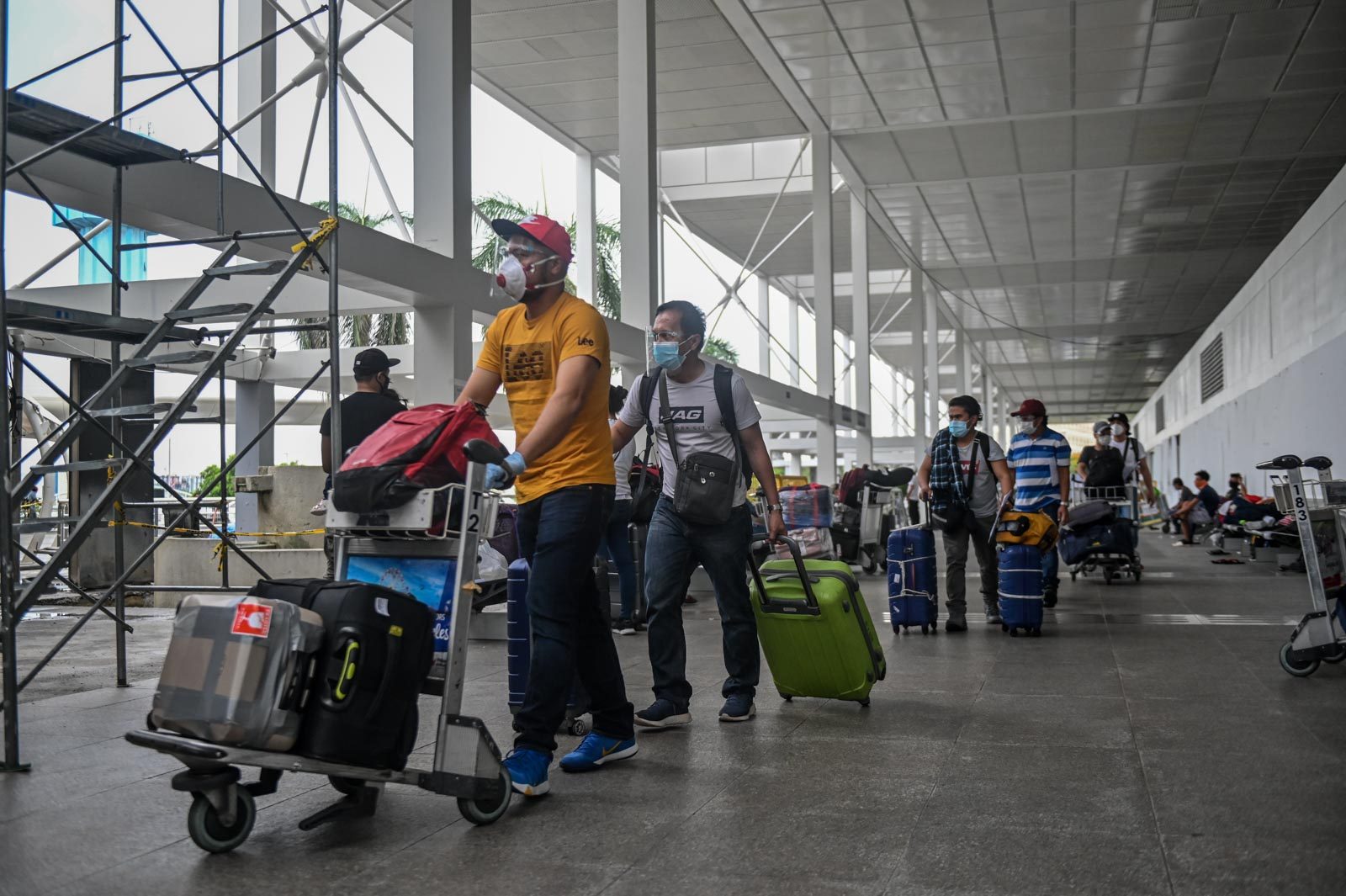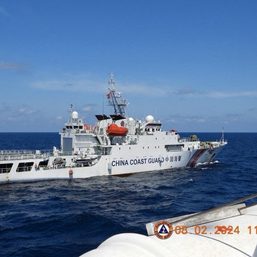SUMMARY
This is AI generated summarization, which may have errors. For context, always refer to the full article.

MANILA, Philippines – Filipino seafarers aboard European Union (EU)-flagged ships no longer have to worry about being displaced due to issues with the Philippines’ compliance with international maritime standards.
The European Commission (EC) Directorate General for Mobility and Transport (DG MOVE) announced on Friday, March 31, that it will continue to recognize certificates of seafarers issued by the Philippines.
The positive move comes more than a year since the commission informed the Philippines that recognition of Philippine seafarer certificates would be withdrawn unless “serious measures were taken,” including proof that the country was complying with the International Convention on Standards of Training, Certification and Watchkeeping (STCW) for seafarers.
The DG MOVE said that since December 2021, when it informed the country of the possible withdrawal, the Philippines made “serious efforts” to comply, particularly in key areas that include monitoring, supervision, and evaluation of training and assessment.
Had the EU decided otherwise, around 50,000 Filipino seafarers deployed in EU member-states would have been at risk of losing their jobs.
EU Commissioner for Transport Adina Vălean said the commission appreciated the “constructive cooperation” with Philippine authorities, and welcomed their efforts to improve systems of training and certifying seafarers.
“The Philippines [provides] a significant and valued part of the European and global shipping industry’s maritime workforce – indeed, with roughly 50,000 Filipino masters and officers currently working on EU-flagged ships,” said Vălean.
“The Philippines can count on our technical support to further improve the implementation and oversight of minimum education, training and certification requirements, as well as living and working conditions,” she added.
The EU commission said that in the coming months, it intends to provide the Philippines with technical assistance to further improve its education, training, and certification system for seafarers.
The Philippines is one of the world’s top suppliers of seafarers. ([OPINION] The skills debate: The EMSA audit and employability of Filipino seafarers)
According to data from the Department of Migrant Workers, the number of deployed Filipino seafarers as of 2022 almost returned to pre-pandemic levels. From 505,753 deployed seafarers in 2019, deployment dropped to 270,000 in 2020.
In 2022, deployment again rose to almost 490,000.
‘Crisis averted’
In a statement on Saturday, April 1, Transportation Secretary Jaime Bautista said that the department was “deeply elated” by the decision confirming that Philippine authorities have adequately addressed the concerns of the European Maritime Safety Agency (EMSA).
The Maritime Industry Authority, under the Department of Transportation (DOTr) was the lead agency in ensuring compliance with the EC’s standards.
“Our Maritime Industry Authority or MARINA worked relentlessly, together with other stakeholders, to address those findings in the final inspection report of EMSA of March 2021 as well as EC’s assessment report of December 2021,” said Bautista.
Bautista also welcomed the commission’s offer of technical support to further improve the Philippines’ training and certification systems.
“This milestone development in the Philippine maritime industry augurs well for the future of Filipino seafarers who comprise the world’s largest maritime labor. Rest assured we will not waver in our efforts to raise the level of expertise of our seamen to international standards,” said Bautista.
MARINA Administrator Hernani Fabia said the country would sustain the implementation of all corrective actions through coordination among MARINA, the Commission on Higher Education, the Department of Health, the Philippine Coast Guard, and other concerned agencies.
Meanwhile, Migrant Workers Secretary Susan Ople also welcomed the development, and expressed the migrant workers department’s “most sincere gratitude” to the commission.
“With this decision, a crisis of monumental proportions has just been averted,” said Ople. “We look forward to the start of technical cooperation between the Philippines and EC in professionalizing and further improving the skills of Filipino seafarers,” she said.
In a media briefing on Saturday, Ople explained that the EC decision would yield more opportunities for Filipino seafarers.
“We foresee an increased demand for our seafarers, not only in the EU but throughout the world across flag-bearing vessels because it’s a vote of confidence in the Philippines and in the quality of training, education, and certification of our seafarers,” Ople said in a mix of English and Filipino.
Ople also credited President Ferdinand Marcos Jr.’s personal follow-ups that, she said, showed his dedication to the issue.
“When he went to Brussels in December, the President met with European ship owners and engaged with them. In fact, he was running late for the second meeting…. He spent time with them and assured them of the government’s commitment to comply,” she said.
When the Philippines was still under the EC’s scrutiny, the most prevalent concern of EMSA was the maritime studies curricula and training standards.
The noncompliance issue had prompted the Philippines’ House of Representatives to hold hearings on the matter and confront relevant authorities on why the country was still deemed noncompliant despite EMSA findings dating back to 2006.
The Department of Foreign Affairs, for its part, said: “The Philippines has viewed the inspections, verifications and evaluations conducted by the European Commission, through the European Maritime Safety Agency (EMSA), constructively, and is firm in its commitment to meet the same, mindful that these are in the interest of ensuring the best possible conditions for Philippine seafarers looking to serve on EU flag vessels.”
“The Philippines appreciates the continued engagement and the offer of technical assistance from the European Commission in helping ensure that the challenges in the implementation of the STCW Convention 1978, as amended, can be overcome,” it added.
Time for ‘serious reforms’
Opposition Senator Risa Hontiveros lauded government agencies involved in the process and expressed home that “serious reforms are being put in place.”
“Let us continue to push for industry-wide reforms. Kailangang may natutunan sa naging banta sa hanapbuhay ng ating seafarers. (Lessons should be learned from this threat to the livelihood of our seafarers.) Hence, it is imperative that concerns voiced by seafarers themselves, such as unreasonable fees, corruption in training and maritime schools, requirements, and others, be given greater consideration,” she said.
“It is also important to observe that the majority of negative findings were due to the deficiencies in the education system. We call on the Commission on Higher Education and the Marina to continue to remedy such deficiencies,” she added.
Hontiveros also said she will continue to push for the passage of the proposed Magna Carta of Seafarers. – Rappler.com
Add a comment
How does this make you feel?










There are no comments yet. Add your comment to start the conversation.